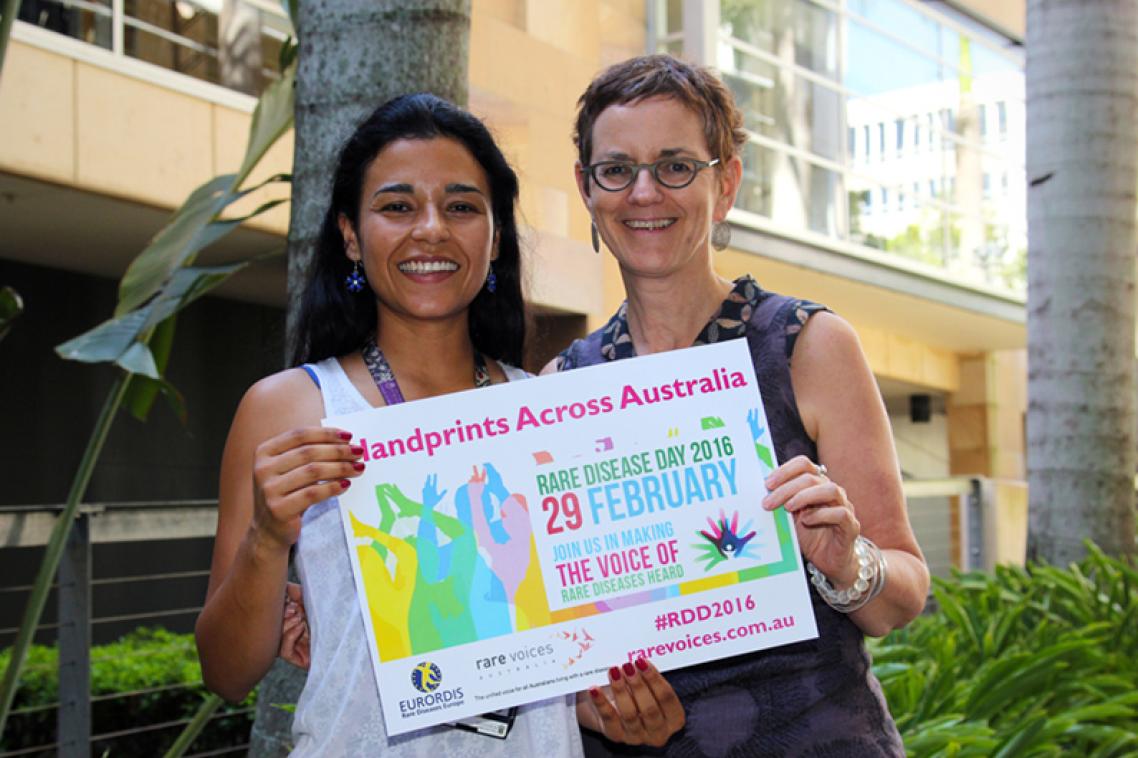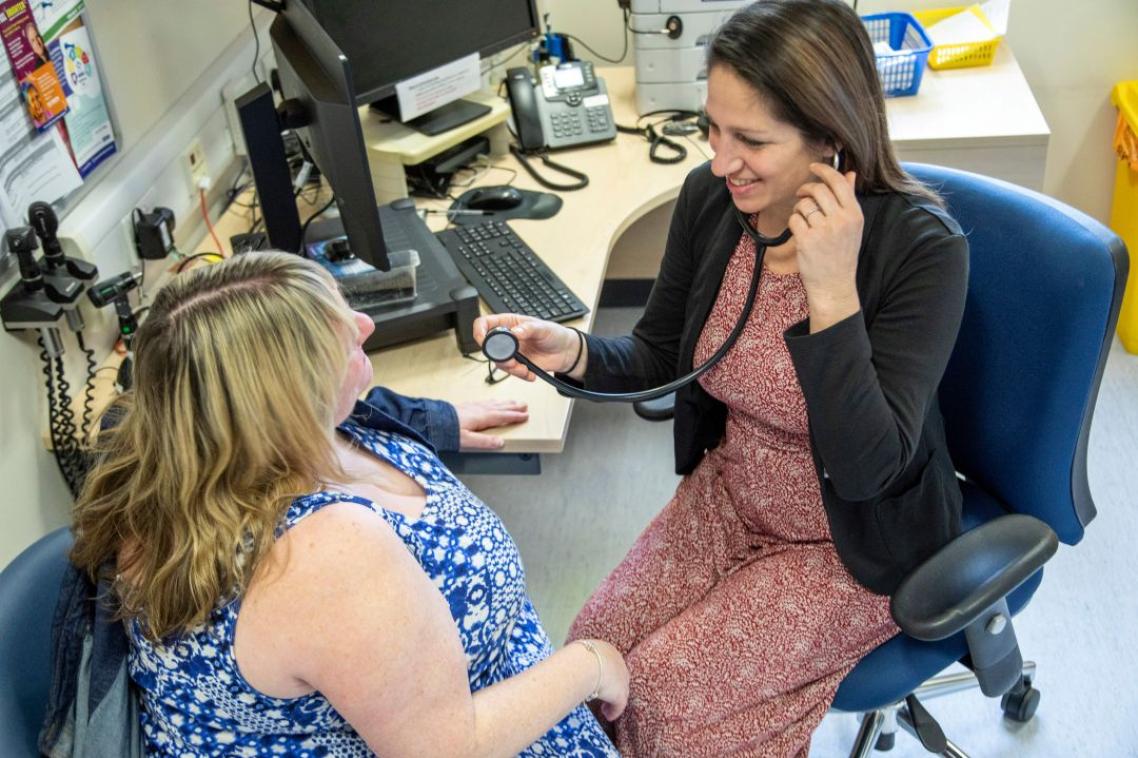UQ researchers unlocking mysteries of rare diseases

Today is Rare Disease Day.
University of Queensland researchers are working to find causes and treatments for some of the world’s rarest diseases – which collectively affect more than 1.2 million Australians.
UQ’s Institute for Molecular Bioscience Centre for Rare Diseases Research Director Associate Professor Carol Wicking (pictured on right) said although these diseases were individually rare, collectively they were common, with roughly one in 12 Australians living with a rare disease.
“We need to overcome the perception that rare diseases don’t warrant the investment that more common diseases like cancer, diabetes and heart disease attract,” she said.
“Families with rare diseases can feel forgotten as they try to access life-saving drugs, diagnoses and treatment.
“Not only do these families deserve the same support as everyone else, findings from studying rare diseases can also greatly impact our understanding and treatment of more common diseases.”
A rare disease is a life-threatening or chronically debilitating disorder that affects fewer than one in 2000 people (European Organisation for Rare Diseases).
Approximately 8000 known rare diseases affect more than 1.2 million Australians, and roughly one-third of children with rare diseases don’t live beyond the age of five.
Most rare diseases are inherited. Many affect children, but a number only manifest in adulthood.
Read Associate Professor Wicking's article on rare diseases here.
Rare Diseases Day 2016 from The University of Queensland on Vimeo.
Media: UQ Communications, Caroline Bird, c.bird1@uq.edu.au or 3365 1130
Topics
Related articles

Nature versus nurture question addressed in landmark study

A better way to assess cardiovascular health
Media contact
UQ Communications
communications@uq.edu.au
+61 429 056 139
